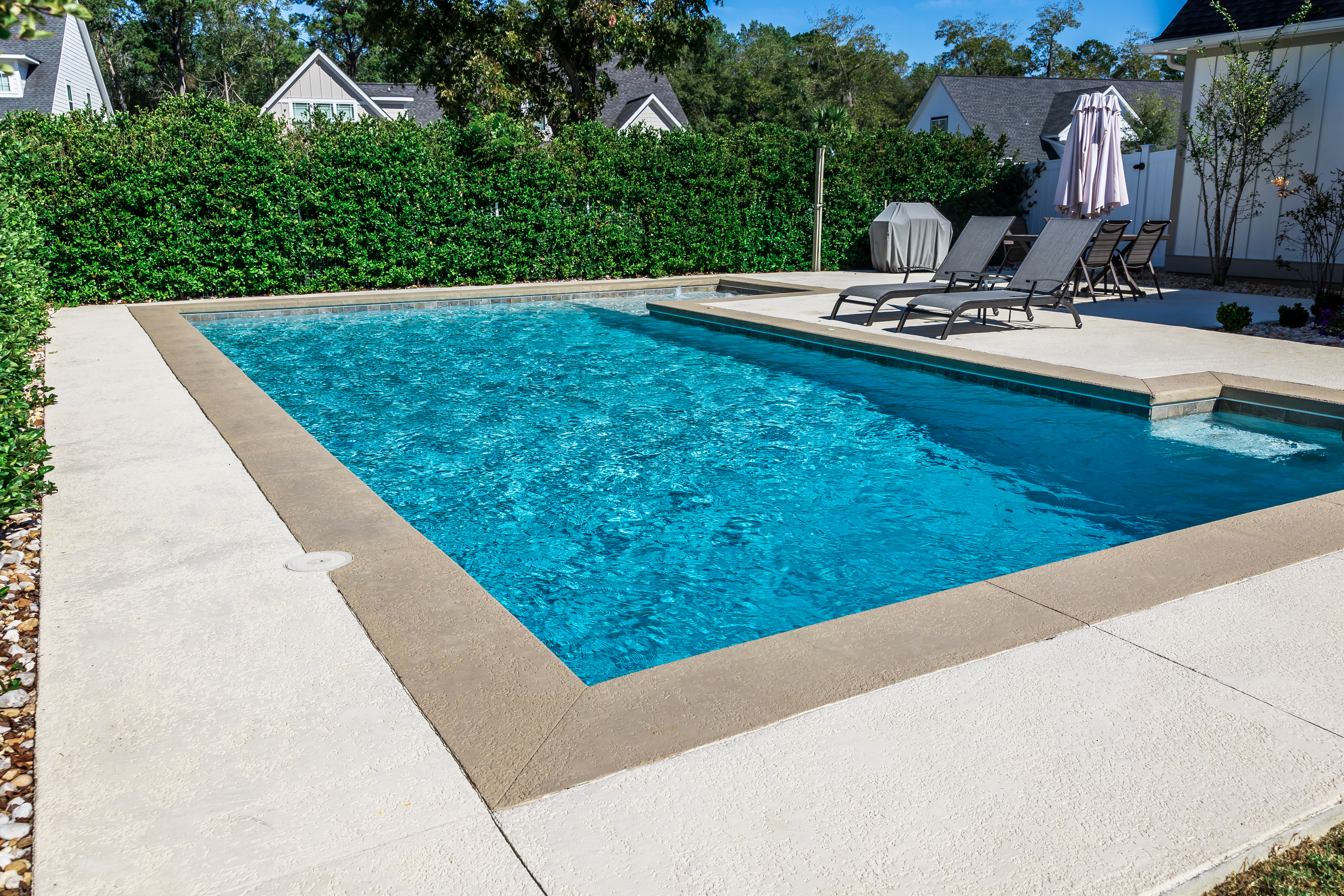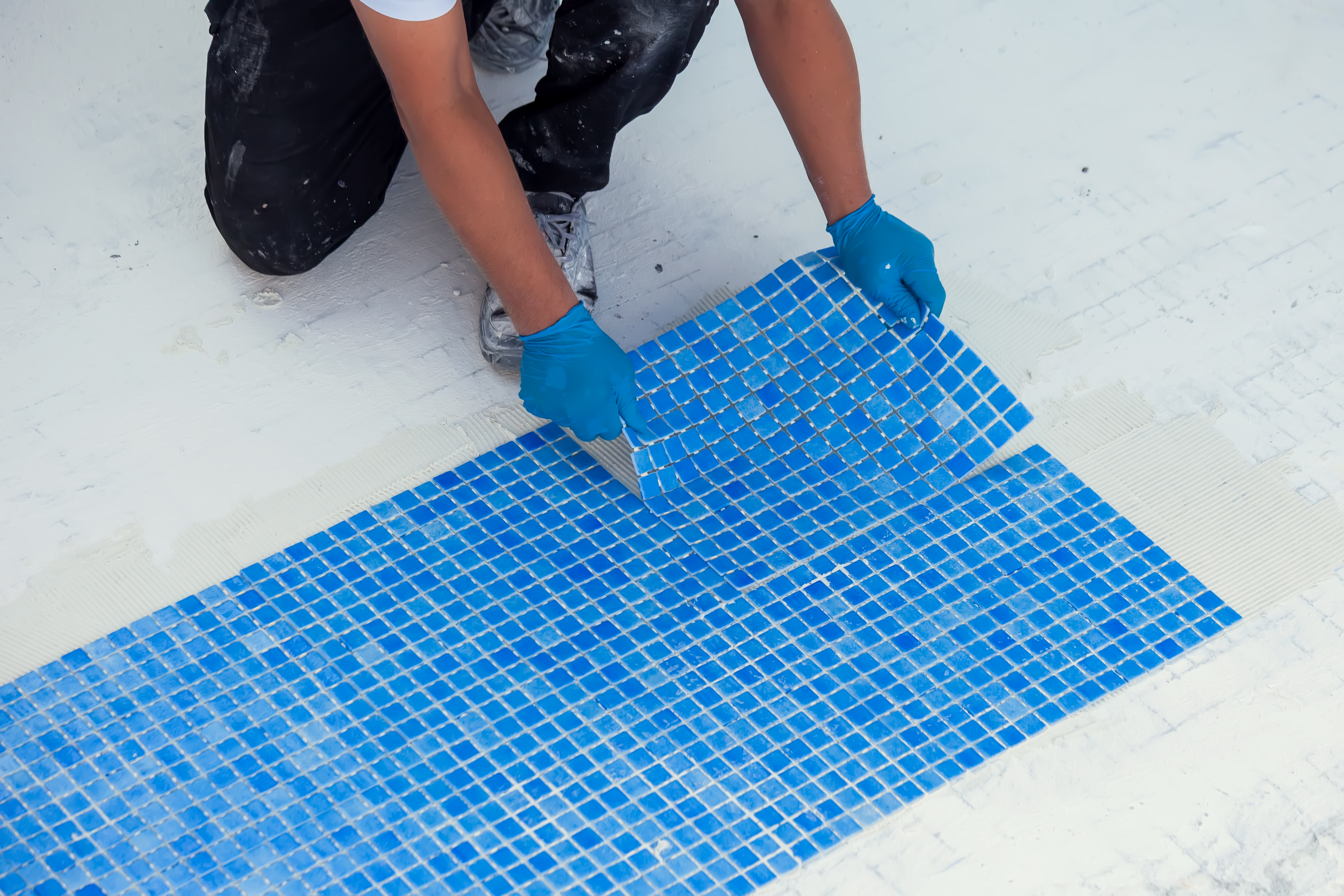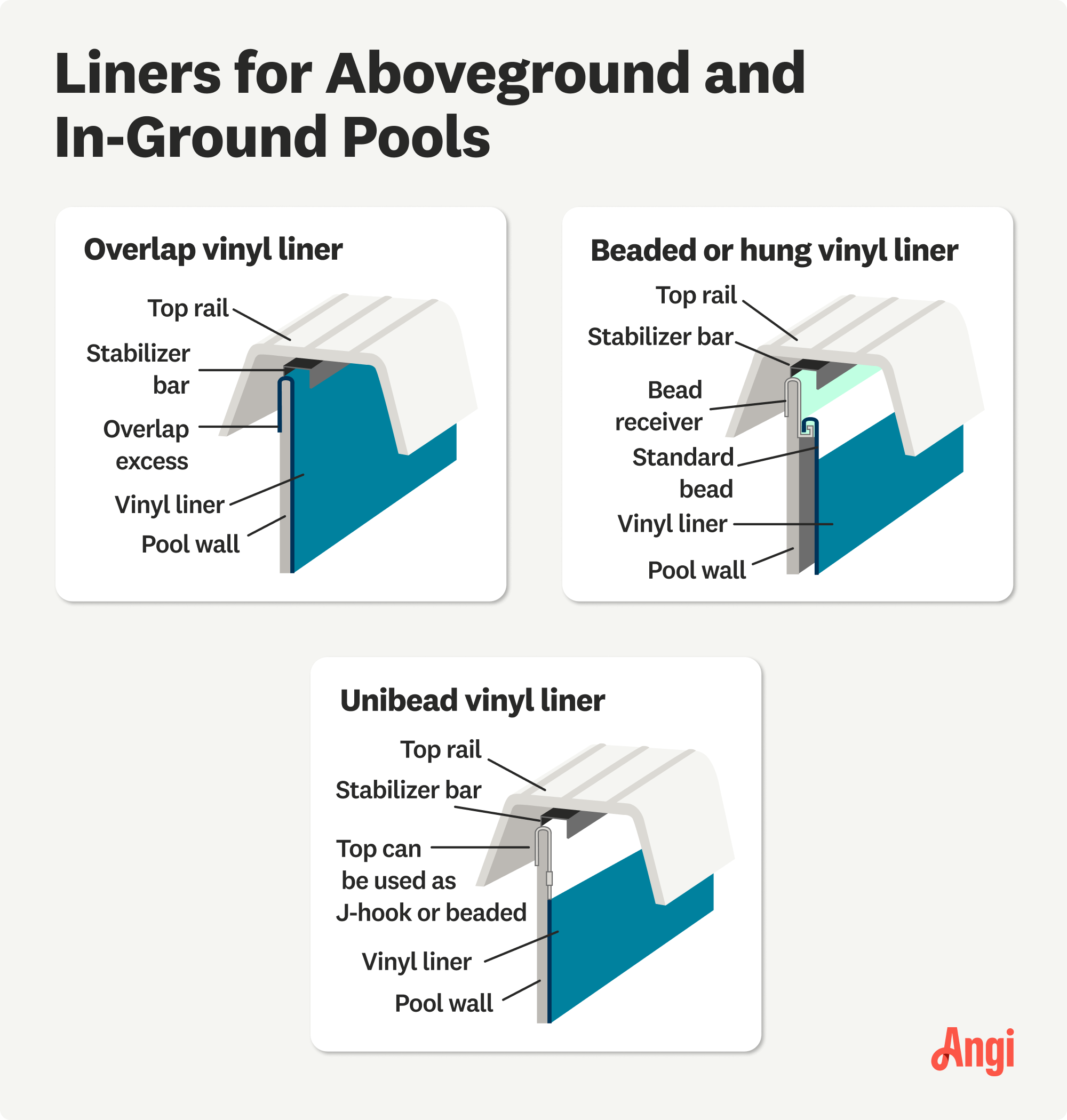
If you’ve been considering installing a new pool in the Buckeye State, this guide will help you understand inground pool costs in Columbus.
Pool liner replacement costs an average of $2,532 in Portland, with a range between $1,433 and $4,182. Consult with a pro to get a quote for your project based on pool size, liner type, and more.


The cost of pool liner replacement in Portland is right around the national average and varies according to your pool size and liner type.
The best time to get a pool liner installation in Portland is between May and September.
Homes with pools in Portland fetch less than homes without pools, so it’s imperative to keep your pool in excellent shape by regularly replacing the liner.
DIYers should pass this job along to a pro unless they’re working on a small, aboveground pool and have experience.
The cost of replacing your pool liner in Portland is $2,532 on average, although it can cost as little as $1,433 or as much as $4,182. Due to the prolonged rainy season combined with short summers, there aren’t as many homeowners with pools in the area. This means there are fewer pool companies, so costs sit around the national average. Take a look at the details that affect your project’s budget, from your pool size to the liner type and more.
The first step in estimating your pool liner replacement cost is looking at your pool size and liner type.
Your pool size is one of the determining cost factors since larger pools require more labor, materials, and time to get the job done.
| Pool Size (Feet) | Average Pool Liner Replacement Cost |
|---|---|
| 6x8 | $240 |
| 8x12 | $480 |
| 8x20 | $800 |
| 10x8 | $400 |
| 12x20 | $1,200 |
| 16x32 | $2,560 |
| 18x36 | $3,240 |
| 20x40 | $4,000 |

Your pool liner material is the second most significant cost factor for your liner replacement project. Most liner replacements are for vinyl pools, which require the most upkeep.
| Pool Liner Material | Average Replacement Cost | Pros | Cons |
|---|---|---|---|
| Vinyl | $300–$4,000 | Cost-effective Various colors and designs | Requires more replacements Susceptible to algae growth |
| Fiberglass | $1,000–$8,000 | Durable Long lifespan | Costs more than vinyl Few design options |
| Tile | $2,000–$70,000 | Visually pleasing Low-maintenance | Difficult installation Slippery |

Since the pool season in Portland is relatively short, aboveground pools can be an excellent solution rather than investing in an in-ground pool. Note that aboveground and in-ground pools require different types of pool liners, and they have different price points.
The primary types of liners for aboveground pools are overlap and uni-bead. Beaded liners are used in both aboveground and in-ground pools. Overlap and uni-bead liners are the most cost-effective.
Overlap liners are clamped down along the edges, while uni-bead liners are hooked to the wall edges or trimmed to be used as a beaded liner. Beaded liners are installed onto a track on the pool wall and require professional installation.
| Pool Liner Type | Average Cost |
|---|---|
| Overlap liner | $200–$600 |
| Uni-bead liner | $400–$900 |
| Beaded liner | $500–$1,000 |
The standard vinyl liner thickness is 20 mil, but there are thicker options, such as 28, 30, and 40 mil. Thicker liners cost $300 to $500 more and offer increased durability.
However, thicker liners aren’t always the best fit, especially if your pool has tight corners and angles. The thicker the liner, the harder it is to fit it tightly along the contours of the pool, which can lead to wrinkling.
You see more angles and corners with custom pools than with traditional ones. In Portland, you’re likely to see these custom pools in luxury homes, whereas most traditional homes have rectangular or oval pools.
Keep these additional factors in mind when planning your pool liner replacement.
Labor for pool liner installation for an in-ground pool is $1,000 to $2,500, while installation for an aboveground pool is $250 to $800. The main driving cost factors for labor are your pool size and shape, since they affect the complexity and time required to get the job done.
Although enthusiastic DIYers can consider doing a pool liner replacement themselves, this project is better left to a pro because it can take days to complete, and some types require precision. For the best results, hire a pool installer in Portland, Oregon. They can evaluate your current pool liner, make recommendations, and install your new liner without you lifting a finger.
Installing a new pool liner requires dry, temperate weather of at least 70 degrees Fahrenheit. The temperature is especially important when installing vinyl liners since heat affects the material. Ideally, it shouldn’t be higher than 85 degrees for vinyl installations.
In Portland, this means the best time to install your pool liner is as early as May or as late as September. To get the best rates, schedule the job ahead of time during the off-season. Keep in mind that if you wait until fall, there is a chance that your project could face delays due to early rains.
Portland doesn’t have permitting requirements for installing pool liners, so you will save money in this regard. However, if your installer discovers repairs that need to be made for your pool, you may need plumbing, mechanical, or electrical permits. Additionally, your pool needs to be properly drained into a sanitary sewer. You can’t drain the water into a stormwater sewer unless the water is dechlorinated with a neutral pH.
Replacing your pool liner about every 10 years is an integral part of maintaining your pool. For prospective home buyers, it’s a good sign that the pool will be usable without the need for costly renovations or repairs.
Keep in mind that having a pool in Portland doesn’t equate to a higher home value. This is likely due to the prolonged rainy season, coupled with short summers. The return on investment (ROI) of an in-ground pool depends heavily on the preferences of local buyers, weather patterns, and the neighborhood. So while a pool in a luxury property in Portland can increase the home value, a pool can lower the desirability of a home in a neighborhood without many of them.
In-ground pools made with sealed concrete are considerably more expensive than aboveground pools, but they also last longer and add more value to your home. Metal or resin shells are the most durable for aboveground pools, while flexible liners are more vulnerable to damage.
Home is the most important place on earth, which is why Angi has helped more than 150 million homeowners transform their houses into homes they adore. To help homeowners with their next project, Angi provides readers with the most accurate cost data and upholds strict editorial standards. We extensively research project costs to develop the pricing data you see, so you can make the best decisions for you and your home. We rely on reputable sources, including the U.S. Bureau of Labor Statistics, academic journals, market studies, and interviews with industry experts—all to ensure our prices reflect real-world projects.
Want to help us improve our cost data? Send us a recent project quote to [email protected]. Quotes and personal information will not be shared publicly.
From average costs to expert advice, get all the answers you need to get your job done.

If you’ve been considering installing a new pool in the Buckeye State, this guide will help you understand inground pool costs in Columbus.

Hot tub costs vary, depending on the type of spa you choose. Learn how much hot tubs cost in 2025 and how to save on new hot tub prices.

Spool pool costs vary based on the design and materials, but they’re relatively affordable and space-saving compared to traditional pools. Here’s a cost breakdown.

Getting your pool ready for the season or shutting it down afterward requires a talk with a pro about these pool opening and closing questions.

Ready to say goodbye to your swimming pool and hello to lush, green grass? Learn how to fill a swimming pool with dirt to ensure proper drainage for an even yard.

Dreaming of getting in those daily laps without tearing up your backyard? Here’s what to know about endless pool costs so you can plan your project.